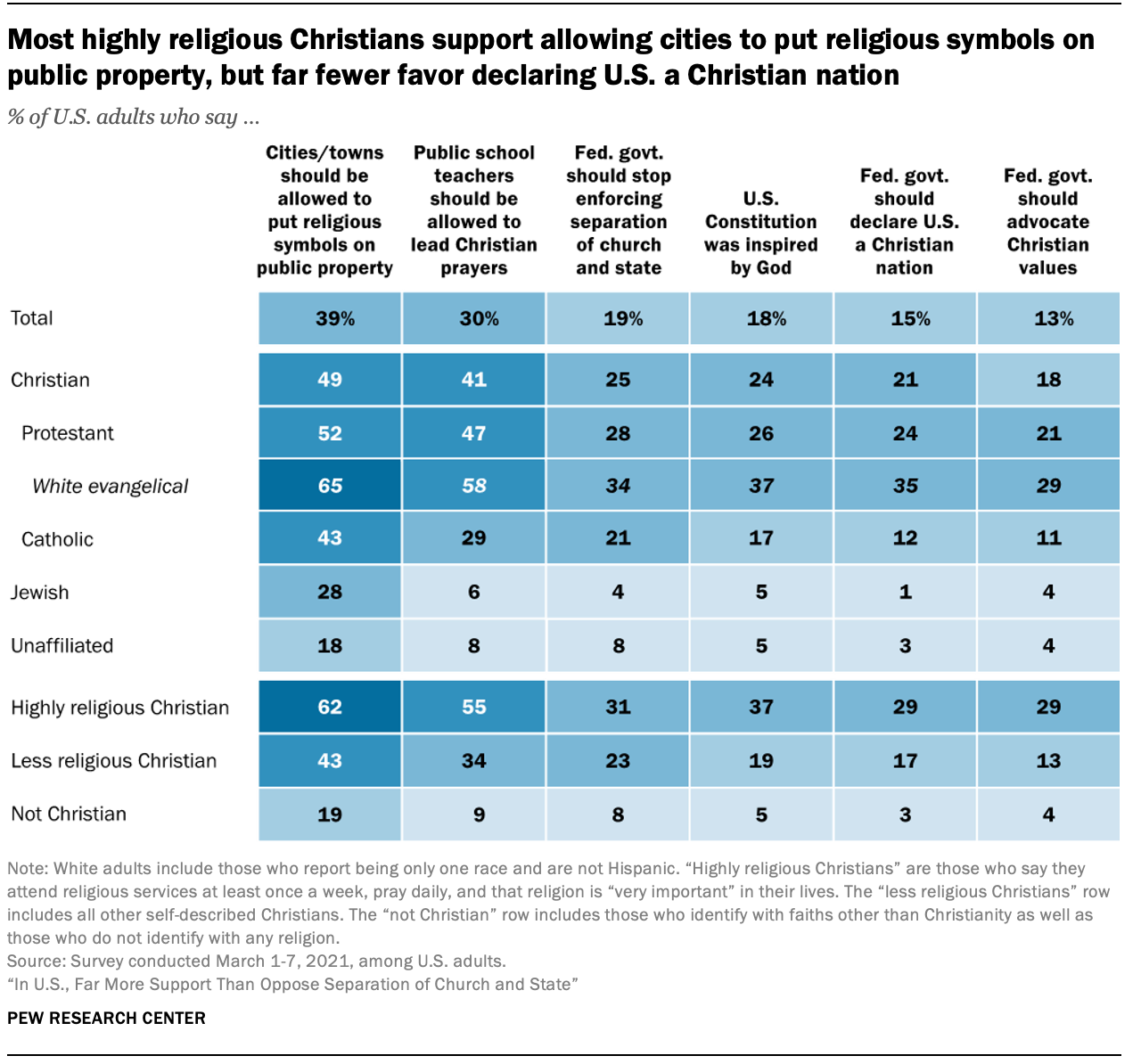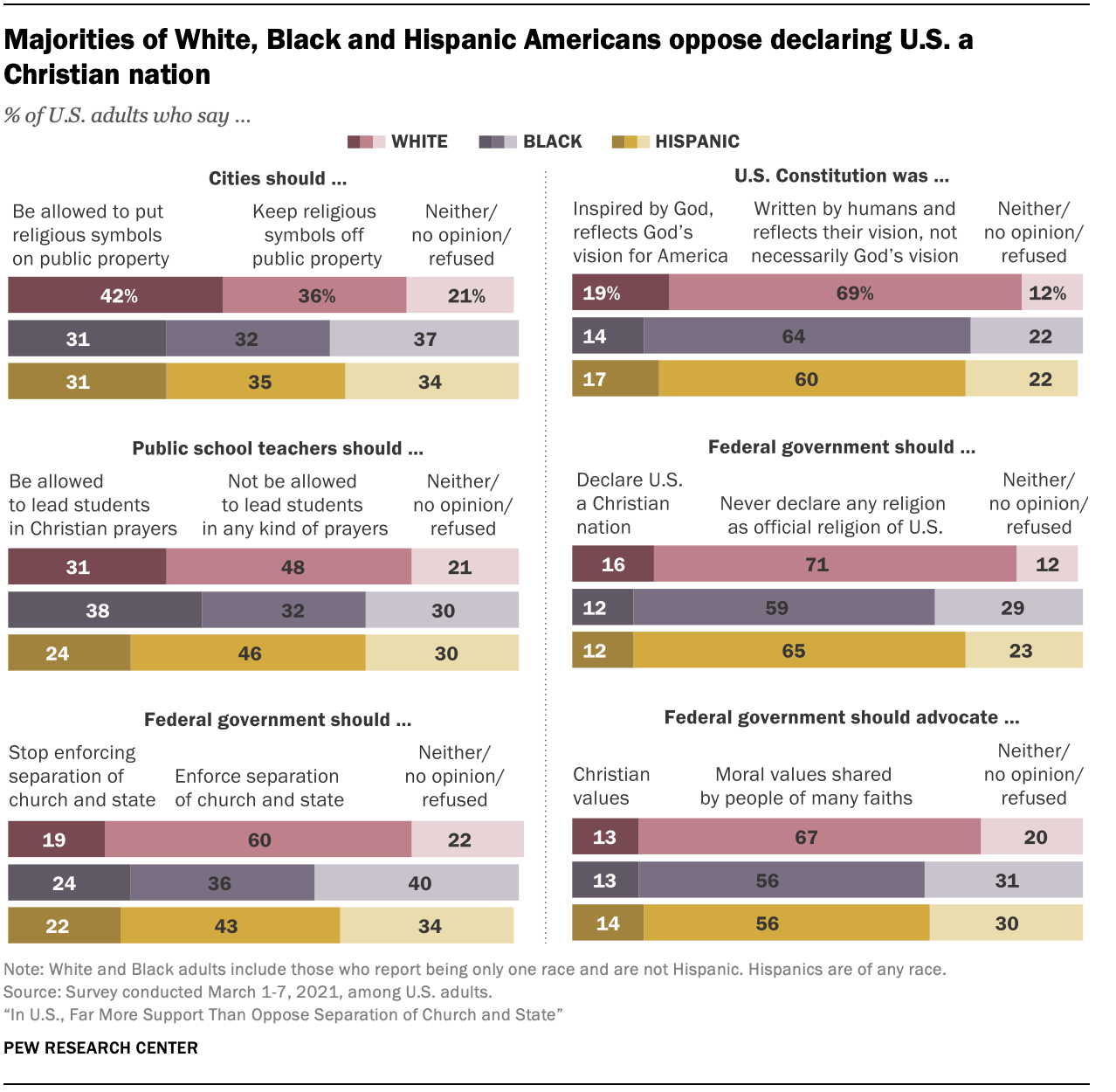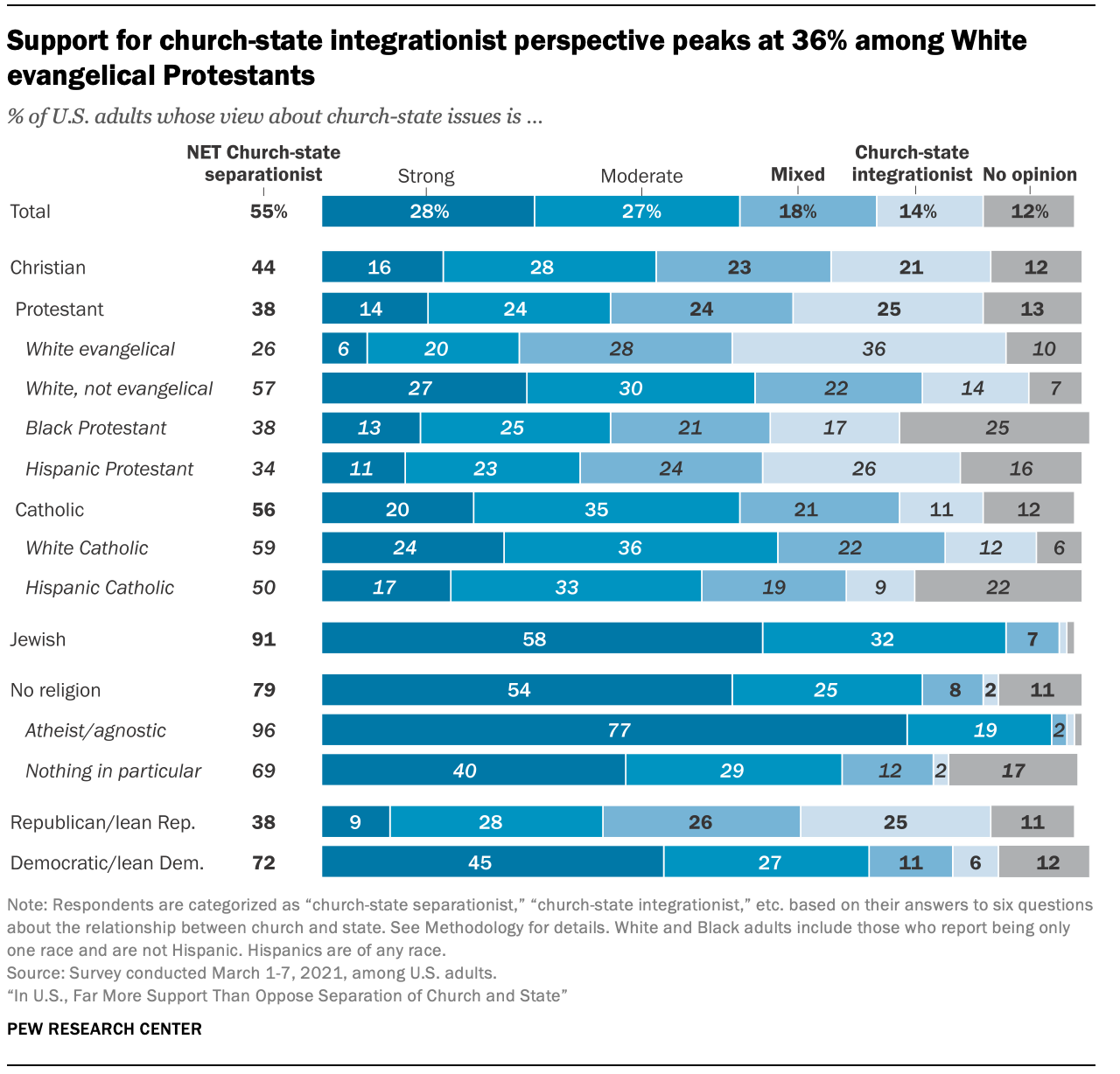Dear Friends,
It’s a special FiTN this week, as the White House released the Build Back Better framework (i.e. the reconciliation bill). The legislative language is not completely settled yet, but this marks significant progress toward a vote. We asked a diverse range of experts their views on the framework — both the positive and the negative aspects of what made it in. Here are two views so far, and we will have more in the next few days:
Stanley Carlson-Thies, Founder and Senior Director of the Institutional Religious Freedom Alliance at the Center for Public Justice
Build Back the Child Care and UPK Provisions Better
Cost makes child care and pre-kindergarten inaccessible to many low-to moderate-income families from urban to rural areas nationwide. So it makes sense for President Biden’s plan to include major funding for child care and a new federal program for universal free pre-kindergarten (UPK), advancing equity, growing the economy, and improving our global competitiveness. Yet the specific language for these two programs—which the House Education and Labor Committee adopted early in September—would undermine their positive effect. That language would hamper or preclude the participation of many religious child care providers and schools—yet many parents desire programs for their children that mirror their religious values. The federal Child Care and Development Block Grant, created in 1990, facilitates participation by faith-based centers by giving parents certificates to pay for the care, rather than awarding grants to the centers. The certificate program enables providers to offer faith-infused care and to select compatible staff. The new UPK program should take a cue from this and provide preK certificates to families and invite into participation faith-based schools with religious teaching and religious staff. However, the House’s current language creates a different child care certificate program with restrictions, such as a ban on religious hiring, that could discourage or exclude many religious providers. And the UPK program would be funded by grants, which would exclude religion entirely from pre-kindergarten and has other restrictive requirements. To promote equity, serve families of faith, and expand the number of child care slots and preK seats, the final version of the legislation needs to develop a hospitable and diverse child care system. Achieving this will require opening new avenues of dialogue and building trust between faith-based providers and early education advocates and administrators.
Patrick T. Brown, fellow, Ethics and Public Policy Center (@PTBwrites)
The Build Back Better framework offers some genuinely good provisions aimed at supporting families, such as making the Child Tax Credit permanently refundable (that is, ensuring families with limited tax liability still receive the full value of the CTC going forward.) But the child care provision goes beyond improving parents' options and instead places a massive, explicit subsidy towards a model of family life in which all parents participate in the labor force. During the Great Society era, we chose to socialize the cost of medical care for the elderly because we thought it was an important reflection of what our society valued. Choosing to do the same thing for child care would send an unmistakable signal about the types of work-life arrangements we see as valuable, and signal to parents who want to be home with a young child that their choice is not worthy of the same level of social investment.
We’ve opened up this usually subscribers-only post to the public. If you like what you see here and you want to support our work, please consider subscribing. You’ll get access to the full archive, expert analysis on the intersection of faith and politics, a weekly Political Brief, and access to these kinds of posts called Faith in the News.
Faith in the News, week of 24 October 2021
We wanted to wait until this morning to release Faith in the News because of the historic meeting between the US’s second Catholic President and the Pope at The Vatican. It didn’t disappoint in terms of interesting sound bites and interaction. The President told reporters that the Pope told him to continue taking communion in reference to the recent debate over whether or not the President should in the US over his stance on abortion. (RNS) Twitter had great updates:

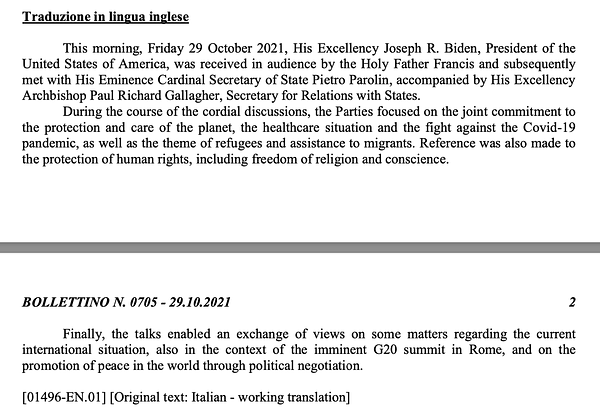

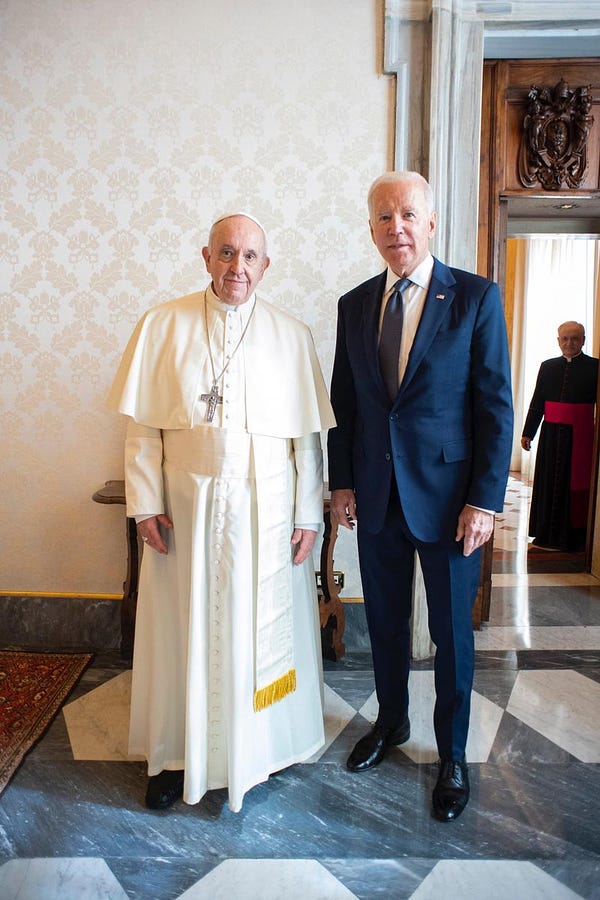
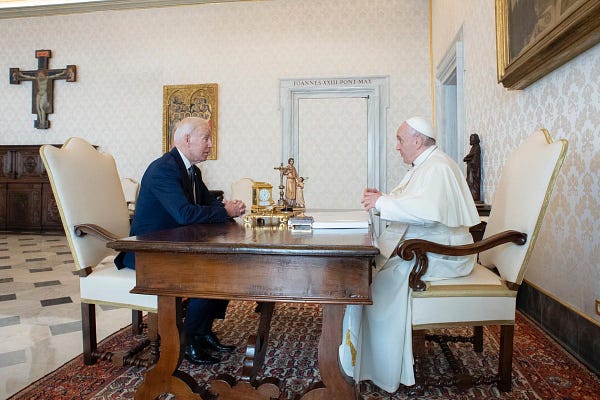


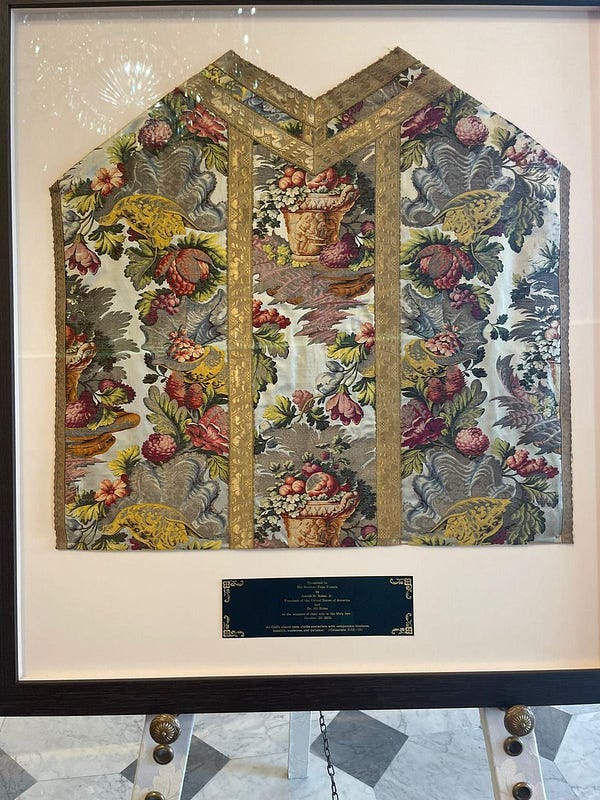
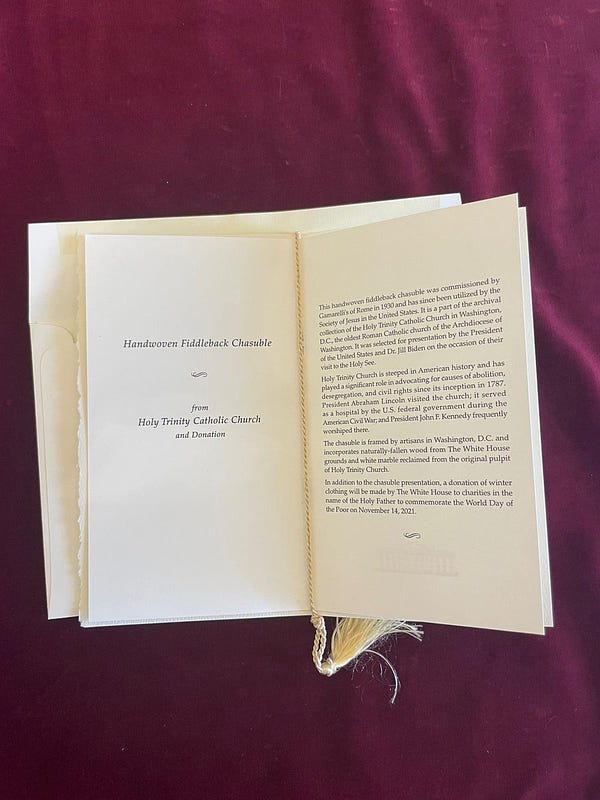
Afterwards, ahead of the COP26 in Scotland, the Pope gave a message on the BBC encouraging global leaders to fight climate change. (AP)
On Tuesday, Rashad Hussain, the nominee for Ambassador-at-Large for Religious Freedom went before the Senate Foreign Relations Committee. (CT)
Speaking of religious freedom, this is a good Q+A with USCIRF Chair Nadine Maenza on the alarming religious freedom issues in India. (Al-Jazeera)
We included a link a few weeks ago about the last Jewish person leaving Afghanistan. It’s now being reported that a woman named Tova Maradi is the last Jew to leave Afghanistan. (RNS)
Some fascinating new data on the separation of Church and State from Pew:
Sarah Pulliam Bailey has a piece on congregations redefining their definition of evangelical. (WaPo)
Finally, there’s loads of new content on Netflix about Haredi Jews, and this BuzzFeed article explores reactions in the Jewish community to this recent spate of content.





